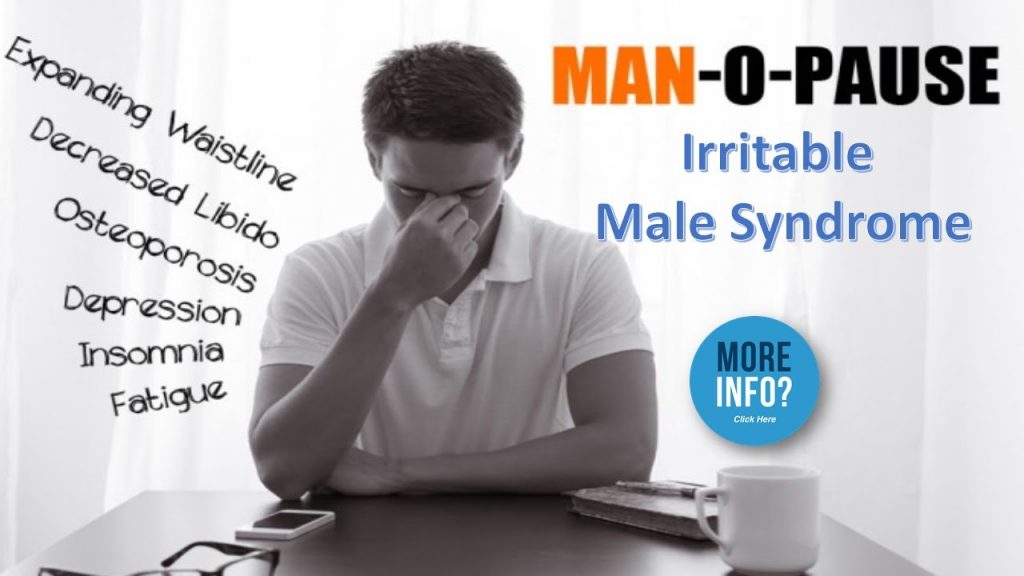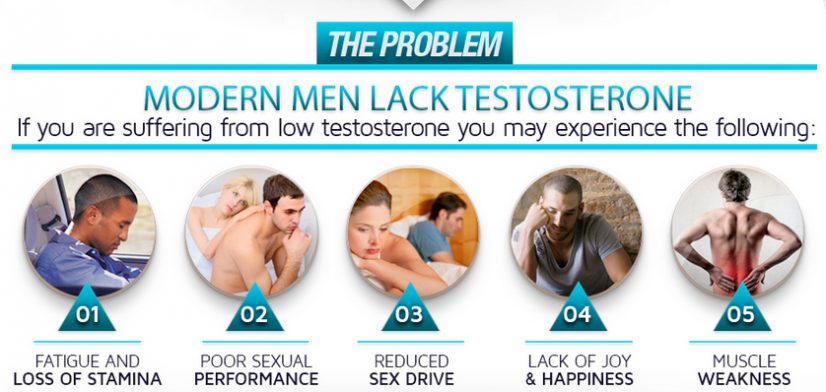There is an often questioned, doubted and sometimes controversial topic about male physiology – do male periods exist? Lets consider the following things.
Are you struggling to want to do anything? Would you lie down all day if you were given a chance? Is all you want have a bar of chocolate or junk food? Do you feel tired and/or nervous? Did you get bored since you think that I ask a lot? Yes to all questions above?
There could be a simple explanation for you guys – you could be on your Male Period!
Yes, you did not read it wrong – male periods otherwise known as Irritable Male Syndrome (IMS) is almost the same as female menstruation psychologically, but very different that physiologically. Obviously, we don’t bleed or don’t have menstrual pains which are great advantages. I really appreciate women’s resilience when I think about them bleeding for at least 3 days in a month with all those pain. Still we are human beings with hormones as well as women are.
I experienced these changes or fluctuations in my body/psychology in the last week and I wanted to write this article at that time, however, frankly saying, I was so nervous that it was impossible for me to even think about this sexual health topic. I experienced such things before, they were soft ones though and I was good at finding reasons for my state of mind in the past but this time there was no “reasonable” reason to feel in that way.

Male Periods Really DO Exist!
I gathered some information after a little bit of research for Do Male Periods Exist. Actually, researchers have conducted little specific research on this topic. There are few made in 70s, and nowadays the most popular one is a book “The Irritable Male Syndrome” by Jed Diamond which is “based on his 35 years of clinical research and responses from nearly 10000 males” says on his website. On the other hand, this, whether males have periods or not, is still a debatable topic for scientist/doctors and I don’t want to discuss that part of the topic.
However, there are some points that I want to highlight. Let’s have a look at what we know. As everybody knows, both women and men have both estrogen and testosterone. Each gender has certain amount of those hormones; estrogen is higher in women, testosterone is higher in men. Just as women experience a monthly rush of estrogen, it’s believed that men go through periods of testosterone deficiency, leading to more emotional times.
Testosterone And Fluctuating Hormone Levels
This is not the only fluctuation in our hormone levels that we have. Apart from monthly changes, men experience changes in their hormone levels 2-3 times in an hour as testosterone rushes in every 15 minutes. That’s why we are always horny, so blame it on the hormone.
Secondly, testosterone level is in the highest level in the morning and then gradually decreases. That’s why we have morning erections and want to have sex crazily in the morning than any time of the day. So, here is a little tip for you ladies: talk to him in the evening if you need to convince him for anything you want to have as he has lower testosterone in his blood than usual.
Thirdly and lastly, we have yearly cycles as well. Testosterone level is higher in Fall and lower in Spring, that make sense now about why men have summer love. I also want to share the results of a survey conducted by VoucherCloud with you. VoucherCloud asked the respondents of around 2400 (50 % male, 50 % female) if they suffer the same side effects of menstrual cycle of women including tiredness, cramp and increased sensitivity.
The Results Speak For Themselves
The results shows that 26 % of men experience these feelings on a regular basis and 58 % of their female partners believe them and also men mentioned general PMS-related symptoms such as constant hunger to general irritability. Additionally, 43 % of female respondents say that they offer support to their partners in this period of time, while 33 % tells their partner to “man up”.
Here is the problem! We don’t have to “man up”. We are hormonal human beings just like women and we have right to have our own special time and to express our feelings freely in a way we’d like to do it because it is natural. However, it is really hard for us to feel free in this environment. Women can talk about their cycles among themselves but a man cannot say anything about what he feels. In those cases, you are more likely to be labelled as “Faggot!” Nobody will think that you may need a little warm smile or a candy bar.
Please understand that the more we find out that we are similar, the better we would be. Break taboos, express yourself freely, embrace each other.
The Mystery of Irritable Male Syndrome (IMS)
Irritable Male Syndrome (IMS) characterises a behavioural pattern marked by mood swings, irritability, and frustration. It can affect men’s interpersonal relationships and overall quality of life. This article aims to shed light on this often overlooked syndrome, its impacts on relationships, and the various methods to alleviate its symptoms.
Understanding The Irritable Male Syndrome
IMS is not just a made-up term. It is a real and scientifically acknowledged condition, with documented cases in various mammalian species exhibiting seasonal breeding patterns. In humans, this syndrome can manifest itself in different ways, ranging from anger to sadness and dissatisfaction.
Recognising The Symptoms of Male Periods
Recognising the signs of IMS can be the first step towards understanding and managing this condition. The primary symptoms of IMS are:
– Hypersensitivity: Men with IMS often perceive that others are bothering them excessively and may feel that the world is getting more annoying.
– Anxiety: This is a state of apprehension and fear that results from anticipating a realistic or fantasized threatening event or situation.
– Frustration: This feeling emerges when you perceive obstacles blocking your path to achieving something important.
– Anger: IMS can cause men to react with excessive anger to minor irritations. You can direct this towards others or oneself.
In addition to these emotional symptoms, physical changes such as reduced sex drive, difficulty sleeping, and decreased energy levels may also occur.
Unveiling The Causes
Hormonal imbalances, especially a decrease in testosterone levels, often contribute to IMS. Testosterone is a crucial hormone for male reproductive development, muscle mass, and body hair. Its levels tend to decline gradually in men starting from their 30s.
Lower testosterone levels can affect some of the key areas influencing how you relate to your partner, contributing to the onset of IMS. Other factors such as high stress levels, certain medications, and high estrogen levels can also contribute to this syndrome.
The Impacts On Relationships
Male Periods or IMS can significantly impact interpersonal relationships. Moodiness and a change in libido can interfere with what was once a loving relationship. Other symptoms, like poor sleep, can affect many aspects of your overall health.
Being open with your partner about all of your symptoms of male periods can help them understand what you’re experiencing and provide support during this challenging time. IMS can cause misunderstandings and conflicts in relationships, hence, it’s essential to communicate effectively about these changes.
Diagnosing The Condition
If you suspect IMS, checking your testosterone levels is an essential first step. You can include this in a regular blood test to check your overall health markers.
Your doctor can provide more insights based on a physical examination and a conversation about your symptoms. Other underlying conditions could also be responsible for your male periods symptoms, so a thorough investigation is crucial.
Treatment Options
If IMS is caused by a decrease in testosterone levels, one of the main treatment options is testosterone replacement therapy. Regular injections of a synthetic version of the hormone can often help restore vitality and other characteristics affected by declining hormone levels.
Maintaining a healthy lifestyle is also important. Managing your weight, eating a healthy diet, limiting alcohol consumption, and exercising regularly can all contribute to alleviating the symptoms of IMS.
Mental health treatment is important if your relationship is affected by IMS. Therapy can show you how to work through your emotions in a positive way and communicate better with your partner.
Managing IMS: Practical Steps for Male Periods
Managing IMS starts with recognizing symptoms, getting diagnosed, and following through with treatment. Here are some tips to help maintain a healthy lifestyle even with IMS:
– Acknowledge changes in the way you respond to situations.
– Learn to recognize changes in your mood and take steps to relax or defuse the situation.
– Listen calmly as your partner describes mood or personality changes.
– Consider a testosterone level test and therapy if it’s appropriate.
– Learn stress-busting and relaxation techniques, such as meditation, yoga, or breathing exercises.
– Get more exercise to increase the levels of endorphins, the “feel-good” hormone, in your body.
– Eat a heart-healthy diet and cut back on foods and beverages with added sugars.
Give therapy a try. Whether it’s individual counseling or couples therapy, professional help can provide tools to better manage your emotions and improve your relationships.
The Role Of Male Periods Support Groups
A supportive community can be a significant resource when dealing with IMS. Support groups can provide emotional support, practical help, and a safe space to discuss your experiences and feelings.
Being part of a support group can lead to a better understanding of IMS and its impacts. It can also provide coping strategies and encouragement from others who are going through the same experiences.
Irritable Male Syndrome is a real condition that can significantly impact a man’s life and relationships. However, with the right tools and support, it can be managed effectively. If you or someone you know is dealing with IMS, remember that you’re not alone, and there are resources available to help.
Remember: Always consult with a healthcare professional for a proper diagnosis and treatment options. If you’re struggling with IMS, don’t hesitate to seek help. You deserve to feel your best, both physically and emotionally.

Meet Stephen, a bold and opinionated cis-gendered gay advocate for gender equality and sexual education. Join him on the Adultsmart blog for fearless insights.








Leave a Reply